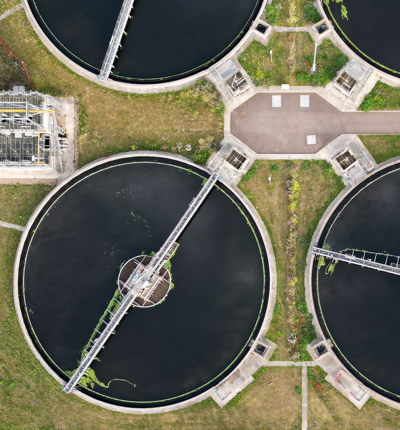
The competition water sewage cases: Lessons learned post Manchester Ship Canal No2
Oliver Holland and Rosio Cafarelli explain how judgments in claims against sewerage companies were unhelpful for a proposed class action claim in the Competition Appeal Tribunal
Posted on 14 April 2025
The water cases
Last year Professor Carolyn Roberts, an independent water and environment consultant, brought an opt-out class action on behalf of a proposed class of millions of household customers against six sewerage companies in the Competition Appeal Tribunal.
However, the claim against the sewerage firms for misleading Ofwat about their environmental performance hit an obstacle following a separate Supreme Court judgment.
In publishing its judgment earlier this month, the Tribunal did not make a Collective Proceedings Order (the CPO Judgment)in Prof Roberts' proposed class action on behalf of household customers across England, meaning it could not go ahead as a class action at all, subject to any appeal that Prof Roberts may bring.
The opt out class action
The premise of the opt-out claim is that the six sewerage companies (Severn Trent, Anglian Water, United Utilities, Yorkshire Water, Northumbrian Water and Thames Water) dominated their regional market as the only sewerage company licensed by the Water Industry Act 1991 to provide water and sewage services within their geographical region of appointment.
In turn, it was alleged that the sewerage companies abused their dominant position by misleading Ofwat, the water regulator, about their management of sewage related pollution - they said they were performing better than they were in terms of the number of untreated sewage discharges, resulting in consumers being charged more by the water companies. Ofwat decides how much household customers have to pay the sewerage companies each year and part of this determination is based on environmental performance i.e. the better they perform the more that can be charged to customers - Prof Roberts alleged that because the sewerage companies were misleading the regulator about their environmental performance, household customers were ultimately paying higher bills than they should have been. Had the sewerage companies accurately reported their pollution, household customers would have paid lower bills.
The Manchester Ship Canal decision and Marcic
The class action claims were filed before the Supreme Court handed down its judgment on The Manchester Ship Canal Company Ltd v United Utilities Water Ltd No 2 [2024] UKSC 22 (MSC No 2).
MSC No 2 was a claim by the Manchester Ship Canal Company relating to nuisance and trespass caused by United Utilities dumping sewage through its overflows into the canal’s private property.
Whilst the MSC No 2 judgment was positive for individual claimants asserting their legal rights against the sewerage companies, it was is a setback for the class action with its clarification of whether a claim can be brought in common law or under the Water Industry Act 1991.
MSC No 2 ruled that a private nuisance claim can be brought against a sewage company. But giving its judgment, the court clarified its earlier 2003 decision in Marcic v Thames Water Utilities Limited [2003] UKHL 66 (Marcic).
This was a claim also relating to sewage overflowing into the claimant’s private property, in this case Mr Marcic’s home, as a result of involuntary escapes of sewage from Thames Water’s network (not through storm overflows).
At para [45] of its CPO Judgment, the Tribunal says the proposed class action was in fact, “a more straightforward application” of the rule laid out by the court in Marcic regarding immunity from legal action afforded by the Water Industry Act 1991 than the Marcic case itself.
In MSC No 2 the Supreme Court said the Manchester Ship Canal Company’s claim against United Utilities was different to Mr Marcic’s claim against Thames Water because an “essential ingredient” of Mr Marcic’s claim was a breach of statutory duty by the Defendant. Mr Marcic’s claim depended on showing that Thames Water had failed to drain the district appropriately in accordance with its statutory duties, resulting in involuntary escapes of sewage causing property damage to Mr Marcic’s home. However, this was a question for the regulator and not the court.
The question for the court in Marcic was whether Thames Water had balanced its obligations to serve Mr Marcic versus connecting more customers to its already stretched network. A question the court was not comfortable in answering because it was a policy question which fell squarely within the realm of the regulator (see for example at paras 56, 71, 77 of the House of Lord decision in Marcic).
In addition, because Mr Marcic could not bring his claim in common law or had a claim outside the statutory framework due to the way the law on nuisance has evolved, the court could not give him redress outside the statute (at [82] of the MSC No 2 and [47] of the CPO Judgment).
Unfortunately, according to the Tribunal, the proposed class action also fell into this category, in the sense that the claim was one for the regulator to determine, and because of how the claim was pleaded claim, there was no claim outside the statute.
At para 40 of the CPO Judgment the Tribunal said it was open to considering that misleading the regulator could constitute a self-standing abuse, as in the EU court decision in C- 457/10P AstraZeneca v Commission EU:C:2012:770 [2013] CMLR 7 if it wasn’t for the fact that the overcharge, the loss suffered by household customers, and therefore an essential element of Professor Roberts’s claim, was intricately connected to the sewage companies’ compliance with how Ofwat calculates prices sewage companies are allowed to charge customers (at [43] of the CPO Judgment).
Paradoxically however, the Tribunal suggested that had the proposed class action been pleaded differently, i.e. as an unfair pricing claim, where it was established that the price was excessive and unfair in its own right per Case 27/76 United Brands v Commission, EU:C:19787:22, [1978] ECR 207 there may have been a different outcome (at [44] of the CPO judgment).
This begs the question as to why the Tribunal did not ask the PCR to re-plead her case, given that the Tribunal has done so in the past in similar circumstances (for example, in 1433/7/7/22 Gormsen v Meta Platforms & Ors) and given that, as opposed to Marcic, the Tribunal acknowledged a potential claim may have existed independently from the statutory regime.
Implication for other sewage cases
While the Tribunal’s decision is disappointing, the judgment confirms Leigh Day’s understanding of MSC No 2. In other words, claims in nuisance such as Leigh Day’s Exmouth claim or our action against Welsh Water in the Wye continue to be consistent with the Supreme Court position as laid out in their MSC No 2 Judgment.
In MSC No2, the damage caused to the claimant was clearly an enforceable claim in nuisance and trespass, and therefore self-standing common law cause of action the court could determine independently from the statutory framework (para [42]-[43] of the CPO Judgment).
In addition, the Tribunal helpfully admitted that Marcic was not a straightforward case so any argument that all involuntary escapes of sewage cannot be tried by a court due to immunity by the statute is wrong as the question is clearly a fact-specific one, for the court considering the issue.
Disclaimer – Leigh Day represented Professor Roberts, preparing and filing of the claims for certification, but since April 2024, prior to the MSC No 2 Supreme Court Judgment, Prof Roberts transferred the claims to other solicitors.

Oliver Holland
Oliver is a partner in Leigh Day's international and environment teams. Oliver's practice covers environmental harm, human rights, modern slavery & consumer litigation, including expertise in conflict of law issues & cross-border disputes.

Rosio Cafarelli
Rosio is a group litigation and competition law specialist working in the international and group litigation department

River Wye claim
Residents of the Wye, Lugg and Usk River catchments are bringing a collective legal action against Dŵr Cymru Welsh Water and companies within the Avara Foods poultry group for their alleged role in polluting the region.

